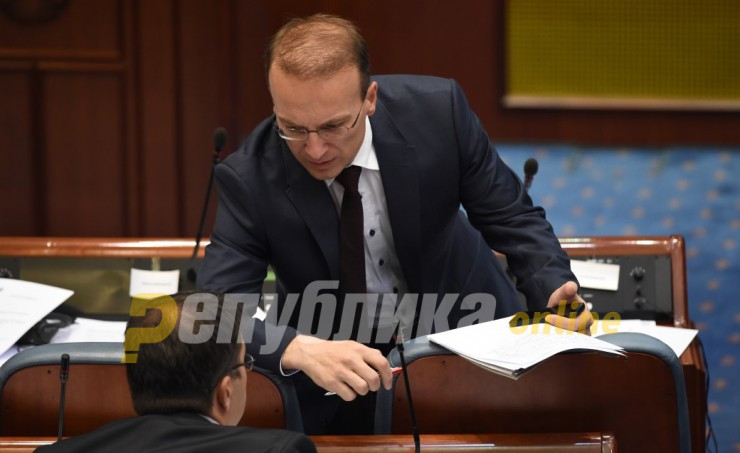VMRO-DPMNE member of Parliament Antonio Milososki, who is part of the opposition’s team in the talks over the Special Prosecutor Katica Janeva, said that VMRO has responded in writing to a proposal the ruling SDSM party made last week, when the two party leaders met but failed to reach agreement.
Milososki said that a notable point in the SDSM proposal is that it is very careful into who will be able to investigate the major on-going racketeering scandal. SDSM agreed to have a prosecutor who would be tasked with investigating high level crimes and corruption appointed by the opposition, but were trying hard to limit his scope of work, and were adamant that this prosecutor won’t be able to investigate the racketeering charges which are stretching high up the SDSM hierarchy. SDSM insists that a prosecutor loyal to their party, Vilma Ruskoska, is the only one who can investigate the scandal.
SDSM have altered their proposal a number of times, including diverging from Zoran Zaev’s promise that he will allow the opposition to appoint the main Public Prosecutor on the coutry. We responded to the latest proposal and we expect that the Government’s team will go through our response in a matter of days. We propose that we have a unified unit tasked with investigating organized crime and high corruption, unlike the hybrid proposals from Zaev who would’ve divided this unit. We also propose that the new organized crime prosecutor is nominated by the opposition, the Parliament and its committees, in a way which won’t allow that the Government has the final word and simply appoints a loyalist such as Ruskoska. We also propose that the list of candidates includes competent scholars and law professors, Milososki said.
Under Zaev’s proposal, if the opposition’s nominee is refused then the Government would propose the organized crime prosecutor, giving every incentive to the ruling majority to reject the opposition’s nominee. Milososki said that the applicants would be nominated by the opposition, or jointly by the opposition and the ruling majority, if the opposition’s nominees are rejected.




Comments are closed for this post.